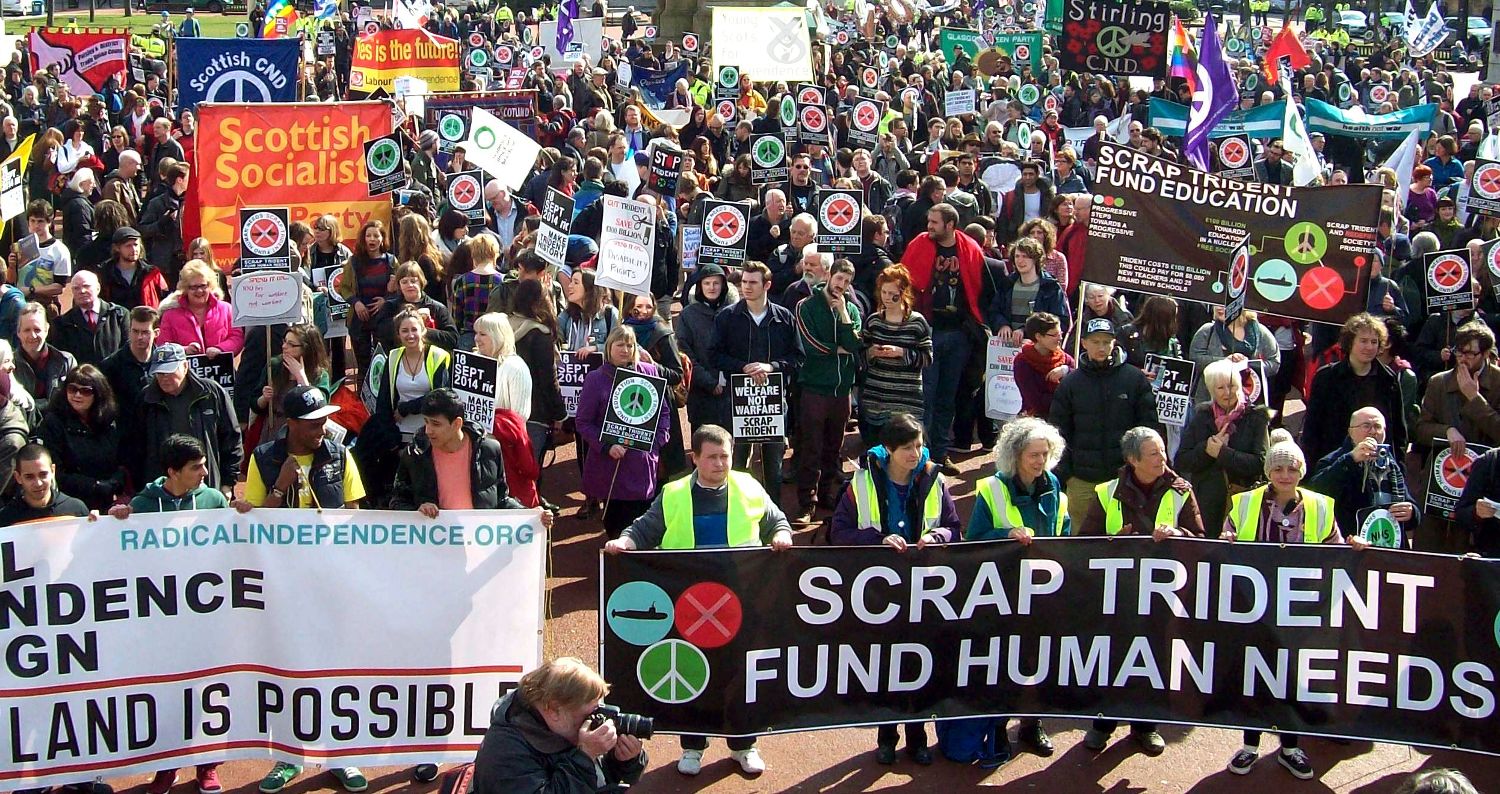
Consensus and evidence of some left unity were present in Glasgow last weekend. Thousands marched in Saturday in George Square in the largest demonstration against nuclear weapons Scotland has seen for decades.
This was backed up by a mass blockade on Monday which hundreds attended. This saw 47 people arrested and the base shut down for two hours. All of this was organised by a steering group of groups of the left including the SSP and peace campaigners like groups from Trident Ploughshares and Faslane Peace Camp.
The Sunday training was a contrast from the more traditional left organising methods of a demonstration and march. People were challenged to consider what non-violent direct action meant. This meant a move away from even shouting at the police or authority figures no matter if it makes you feel better.
The training was full of those who have been opposing nuclear weapons for almost all of their adult lives including women from Greenham Common. They inspired many younger people present to take a stance on the blockade that followed the next day.
Despite the constant fear of the organisers about the lack of people who might attend the blockade a few hundred people were present making this action the most biggest seen at the base for several years.
Police had been brought in from many areas to deal with the protesters. There were demonstrations at both the north and south gates. The first arrests were made at the North Gate with demonstrators being removed in waves at both areas over the rest of the morning.
The demonstrators sat peacefully in the road some were carried into the police vans while others walked in when asked. The mood was a gentle one with campaigners standing their ground against the police using words as ammunition.
As well as the veteran campaigners for whom arrests are a protest against the evils of weapons of mass destruction several younger people were arrested for the first time.
These included young students from Paisley and a 13-year-old girl. Due to the large number of arrests some people were taken to Stewart Street in Glasgow rather than more local prisons.
A friend who was arrested for the first time was locked up alone for 13 hours and was offered chicken casserole instead of a vegetarian meal and one drink of tea. Despite this being her first offence, she was bailed to appear later next month. A harsh penalty for a first arrest.
The success of the weekend has left Peace Protesters with some optimism for the success of future actions. Lessons have been learned from peace campaigners and left activists about how working together can achieve such positive results.
Peace Camp at Risk
What is next? A cloud on the horizon is the possible closure of Faslane Peace Camp after 31 years.
Peace activists are keen in the road to the referendum that the message of protest that the Peace Camp symbolises is taken to the door of the policy makers right at the heart of Scottish and UK politics.
Whether this can be achieved while still maintaining a permanent Peace Camp is still uncertain. Peace activists are debating among themselves and attempting to find solutions. This is our debate too though and one we should be active in being involved in.
A Faslane Peace Camp support group has been set up and has called for those interested in living at the camp to visit and stay on 3-5 May. Present and former Peace Campers will be there to advise what living in the camp might mean.

